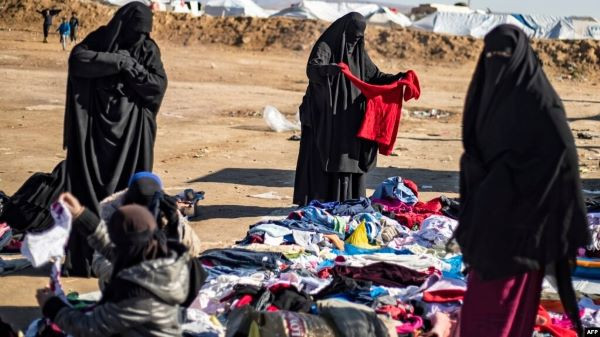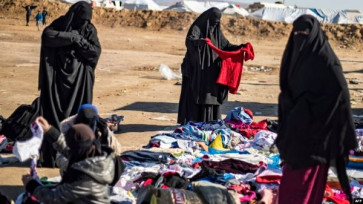Popular Reads
Top Results
Can't find what you're looking for?
View all search resultsPopular Reads
Top Results
Can't find what you're looking for?
View all search resultsIndonesia’s dilemma: Gaza’s victims welcome, but our own are forgotten
While the President's plan to evacuate injured Gazans is laudable, the government must also look to seek a solution for Indonesians stuck in Syrian camps, mostly women and children, if it truly intends to stand with moral authority as a global humanitarian leader.
Change text size
Gift Premium Articles
to Anyone
J
ust recently, President Prabowo Subianto declared Indonesia’s readiness to evacuate up to 1,000 injured Gazans for medical treatment in the country. He visited the Middle East to talk with leaders of the region and seek their support for his plan
Coordinated by the Defense Ministry and pending diplomatic arrangements led by the Foreign Ministry, the initiative positions Indonesia as a champion of humanitarian solidarity and international justice. The move has been widely praised, and rightly so.
For decades, support for Palestine has been central to Indonesia’s foreign policy. It aligns with the country's Muslim-majority identity, the principles of its 1945 Constitution and its long-standing doctrine of politik luar negeri bebas aktif, or independent and active foreign policy.
The plight of the Palestinian people under Israel’s constant oppression resonates deeply with many Indonesians. It is a rare issue that unites political parties, civil society and religious groups in Indonesia across the ideological spectrum.
Yet this noble move also casts a troubling light on an unresolved contradiction. While Indonesia is willing to open its doors to foreign war victims from Gaza, it remains reluctant to bring home hundreds of its own citizens – women and children – who remain stranded in detention camps in northeast Syria, such as al-Hol and Roj.
These individuals, mostly wives and children of former Islamic State (IS) fighters, have languished in legal and humanitarian limbo for years. Unlike Gazans, these are not foreign nationals. They are Indonesians. Many of these children were born in the camps and have never even been to Indonesia. They are stateless not by choice, but by circumstance.
The stark contrast in how Indonesia treats these two populations speaks volumes about the country’s evolving humanitarian posture, as well as its limitations.


















